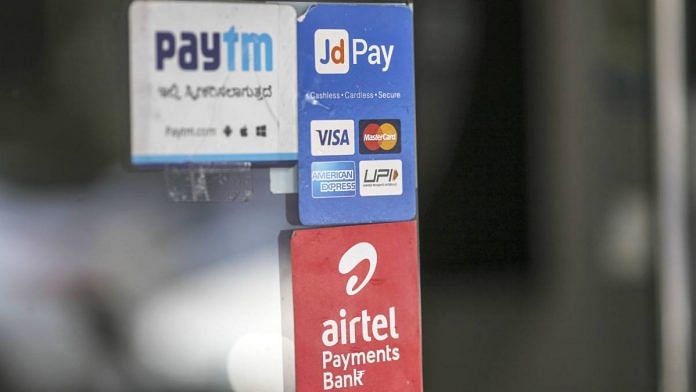The internet, with its open, distributed structure, was designed to withstand a nuclear attack. If it can do that, it can withstand corporate America — said science writer Barry Shell in 1995. Of all the predictions from the early ’90s about the internet, it is both funny and sad that the one we got wrong was this one.
When it was first launched nearly 40 years ago, the internet was supposed to be a decentralised dream. In the Information Age, we were all meant to be connected to each other directly, removing the need for intermediaries — governments or corporates — who were seen as controlling and stifling innovation.
In 30 short years, the Web has evolved to become a spitting image of what it once stood against. Except that now, the same problem, as with everything on the internet, is at scale. The local corporations are now replaced by global behemoths that are arguably bigger in power and finances than most sovereign nations.
The naive folly was in assuming that everything built on top of a decentralised network would magically absorb the values of the network itself. We have learnt the hard way that things aren’t that simple. Democracies around the world are now asking: How do we ensure that the internet is fair and free?
First steps forward
The European Union has been taking the lead globally in reigning in Big Tech via its legal mandate. First, the General Data Protection Regulation (GDPR) laid down the rules for user data and privacy. This has led to some eye-popping headlines on fines, but has it created a fairer, competitive landscape? In fact, a few voices argued that by inflicting high overhead costs of compliance, the GDPR may have bolstered the behemoths and penalised smaller startups.
The EU has now introduced the Digital Markets Act and the Digital Services Act to “level the playing field”. It is a list of dos and don’ts that aims to stop the imposition of unfair conditions on market participants and consumers. These laws, once again, are operationalised by punishing bad behaviour with fines and penalties. The EU has even increased the maximum possible fines. Will a bigger penalty check bad behaviour and create fair competition?
While well-intentioned, the problem with these measures is that all are ex post facto. The horse might have already left the barn.
Also read: India doesn’t need a media market regulator. Industry actually needs more economic freedom
India’s case
In India, there has been a radically different approach to try and bring fairness and equality to the digital markets. In an unprecedented implementation of the “Government as a Platform” dream, introduced on a smaller scale in France, the United Kingdom and Estonia, India has been on an ambitious mission to build its own Digital Public Goods (DPGs) — digital infrastructure built as public goods. United Payments Interface (UPI), a digital payments infrastructure is a good example.
UPI allows all players — small and big — to interoperate with the same transaction cost. It is a protocol much like how the original Internet Protocol (IP) was. This allows users to switch between providers seamlessly, and ensure they aren’t locked into one provider. The adoption has been tremendous in sectors like digital commerce, health, and agriculture.
The power of the DPG approach is non-trivial. Think about the fact that email, a technology invented over 50 years ago, can be sent from anyone to anyone — even if you use different providers. Yet, instant messaging apps such as WhatsApp and iMessage cannot talk to each other. Why? Not because it is technically unfeasible, but simply because it is undesirable for these companies to let go of the returns from “Network Effects”. Basically, profits that come from locking in their users.
Instead of relegating the creation of our digital commons to the market or trying to regulate them after the market consolidation has happened, India’s approach is to roll up its sleeves and build the future it desires. By deciding to build its own digital infrastructure, India has gained a larger say in the design of such platforms, and therefore, in the values they uphold. Instead of mandating interoperability, it can design the standards in a way that they are interoperable by default. Instead of mandating privacy, it can architect the platform to be privacy-protecting by default.
In other words, architecture is the act.
Also read: Digital India dream and arbitrary internet shutdowns can’t go together. Just see the loss
Regulations still important
Building digital infrastructure does not obviate the need to have regulations. In fact, the preferred method in India is the ‘techno-legal’ approach — we use technology as a hammer to embed the broad principles into the code. Then the legal language is the scalpel, which allows for nuance and edge cases to be managed as required.
India’s contribution to shaping the digital economy is being recognised. Recently, at VivaTech, the annual tech conference held in Paris from 15 to 18 June, India was declared the ‘country of the year’. At the India pavilion, there were exciting stories of innovation from Indian startups, including low-cost healthcare devices, alternative fuels and innovations for sustainability as well as cutting-edge space and satellite tech. Prominently, the story of the innovation of India’s DPGs was also on display.
There’s a still long way to go to make the internet monopoly proof, but at the India pavilion, you can start to see what future looks like.
Dr. Chintan Vaishnav is the Mission Director for Government of India’s apex innovation body, Atal Innovation Mission. Sharad Sharma is co-founder, iSPIRT Foundation. iSPIRT Foundation is a not-for-profit think-tank building Digital Public Goods in India. Henri Verdier is the Ambassador for Digital Affairs within the French Ministry for Europe and Foreign Affairs. Views are personal.
(Edited by Humra Laeeq)



